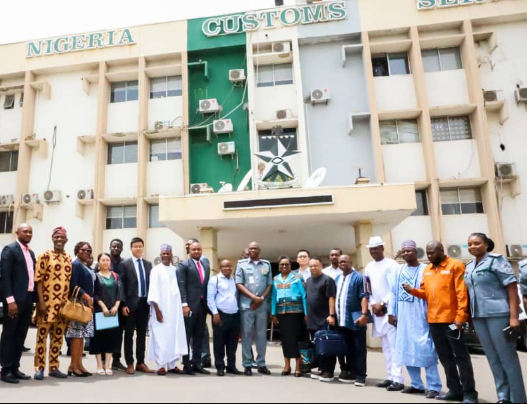The Nigeria Customs Service (NCS) is championing the implementation of an Authorised Economic Operators (AEO) programme to enhance the efficiency and predictability of trade in the country.
The Comptroller-General of Customs (CGC) Adewale Adeniyi, during a meeting with stakeholders in Abuja, said the programme would foster collaboration between the Nigeria Customs Service, other government agencies and the trading community.
Continue reading for all that you need to know about AEO and how you can become one.
What is AEO?
An Authorised Economic Operator (AEO) is a designation which may be granted by customs authorities to economic operators established in the customs territory. AEOs are part of the international supply chain, involved in customs-related operations and who have met certain standards of security and compliance.
The World Customs Organisation (WCO) defines an AEO as “a party involved in the international movement of goods in whatever function that has been approved by or on behalf of a national Customs administration as complying with WCO or equivalent supply chains security standards.”
AEOs include manufacturers, importers, exporters, customs brokers, carriers, consolidators, intermediaries, ports, airports, terminal operators, integrated operators, warehouses and distributors.
The AEO concept is based on the Customs-to-Business partnership introduced by the World Customs Organisation.
Traders who voluntarily meet a range of criteria work in close cooperation with customs authorities to realise the common objective of supply chain security.
This implies that there must always be a relationship between customs and the AEO. This relationship must be based on the principles of mutual transparency, correctness, fairness and responsibility.
The programme, which aims to enhance international supply chain security and to facilitate legitimate trade, is open to all supply chain actors. It covers economic operators authorised for customs simplification (AEOC), security and safety (AEOS) or a combination of the two.
Who can become an AEO?
Any economic operator established in the customs territory and who is part of the international supply chain and is involved in customs-related operations, may apply to the NCS for the AEO status.
The AEO status can be granted to any economic operator that is financially solvent and complies with customs legislation and taxation rules in the country.
Benefits of becoming an AEO
The benefits of becoming an AEO depends on the type of authorisation granted by the Nigeria Customs Service. Some noted benefits to AEOs in other climes include easier admittance to customs simplifications; fewer physical and document-based controls; prior notification in case of selection for physical control (eg physical examination etc) and priority treatment if selected for control.
Other benefits include recognition as a secure and safe business partner; improved relations with customs and other government authorities; reduced theft and losses; fewer delayed shipments; improved planning, customer service and customer loyalty; lower inspection costs of suppliers; increased co-operation etc.
